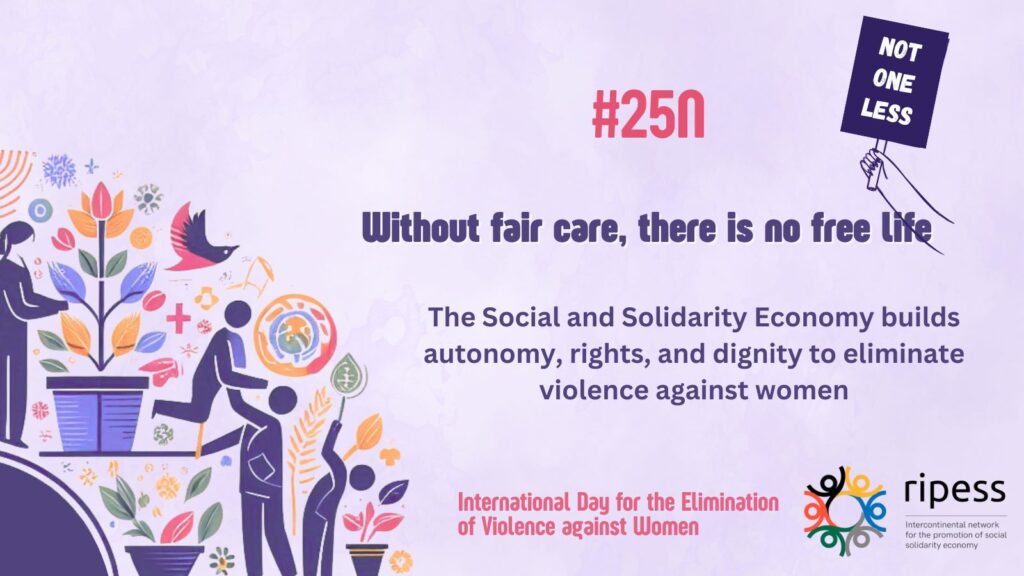
On November 25, the International Day for the Elimination of Violence against Women, RIPESS Intercontinental denounces a reality that persists and worsens: violence against women is not only physical or psychological. It also takes structural, invisible, and normalized forms, such as economic violence, the precarization of care, and the deprivation of autonomy.
This year, following the high-level meeting to commemorate the 30th anniversary of the Fourth World Conference on Women, Beijing +30, held on September 22, 2025 at the United Nations General Assembly, it was confirmed what feminist movements have been pointing out for decades: none of the global gender equality goals are on track to be achieved.
According to UN Women
708 million women are excluded from the labor market due to unpaid care work
1 in 3 women will experience physical or sexual violence in her lifetime
States spend 6 times more on armaments than on gender equality
💜 Caring is not living free
Our global care campaign demonstrated something fundamental:
When care is not guaranteed, distributed, and recognized, it becomes a mechanism of control and dependence.
The lack of economic autonomy forces millions of women to remain in situations of violence and rights violations.
That is why, this November 25, we affirm:
Recognizing, redistributing, and revaluing care is a key strategy to eliminate violence against women
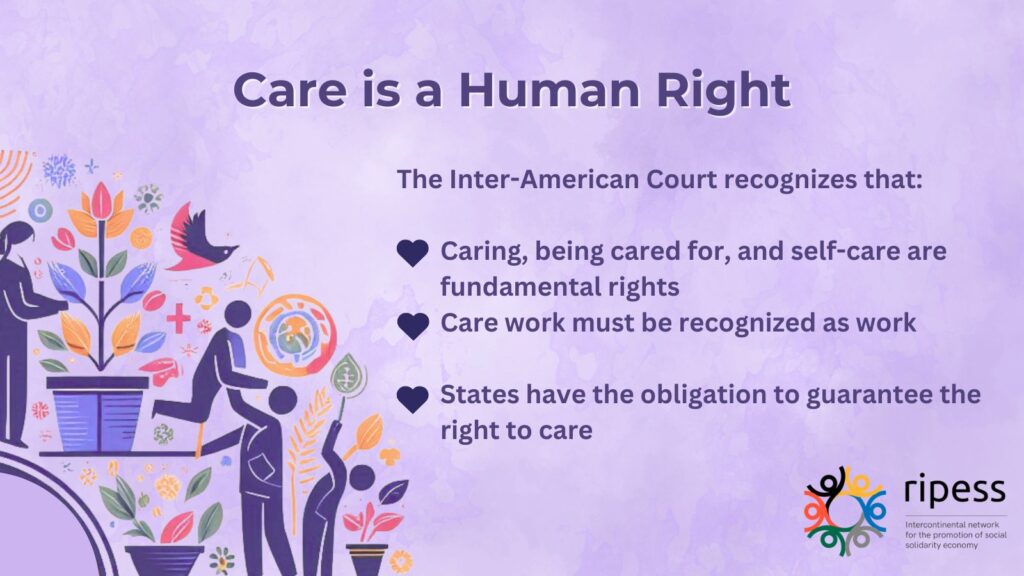
Recognition of Care in Global Agendas
The recognition of care as a key axis for equity and sustainable development is advancing in the international arena:
SDG 5.4 of the Agenda 2030
ILO Convention 189 (2011)
Resolution A/RES/77/281 (2023)281 (2023)
This objective seeks to ‘recognise and value unpaid care and domestic work through the provision of public services, infrastructure and social protection policies and the promotion of shared responsibility within the household and the family as nationally appropriate’.
This convention, on domestic workers, encourages states to ‘adopt measures to ensure the effective promotion and protection of the human rights of all persons engaged in domestic work’.
This UN resolution recognises the role of the Social and Solidarity Economy in implementing the Sustainable Development Goals (SDGs) and in the construction of sustainable and inclusive economic models.
International Day of Care and Support (29 October)
ILO resolution concerning decent work and the care economy (2024)
The UN declaration emphasises that ‘care work worldwide continues to be characterised by a lack of benefits and protections, low pay or lack of compensation, and exposure to physical, mental and, in some cases, sexual harm. It is clear that new solutions are needed on two fronts: with regard to the nature and provision of care policies and services, and to the terms and conditions of care work
These efforts represent a step towards transforming the unequal division of care work between men and women into a more egalitarian organisation of care, promoting social co-responsibility between the state, the private sector, families, the social and solidarity economy (SSE) and the community (ILO, 2024, p. 2)
Resources on Care with an SSE Perspective
Together we are compiling materials that are already advancing the recognition, redistribution and enhancement of the right to care with a view to the Social and Solidarity Economy. If any relevant material is missing, please let us know at: info@ripess.org. Thank you!
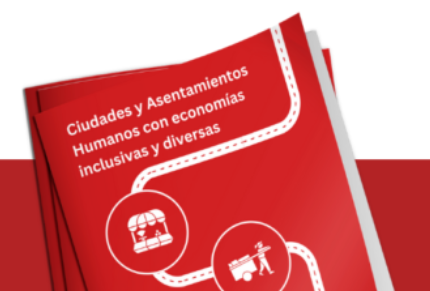
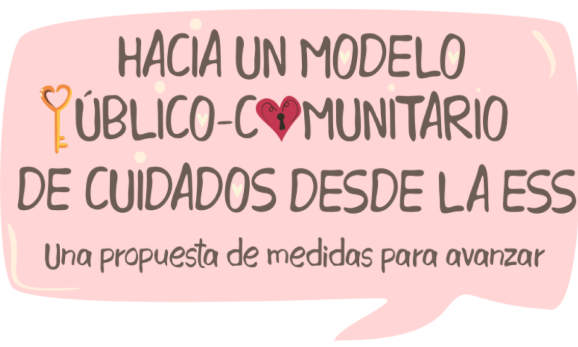
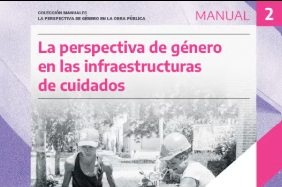
A publication that seeks to highlight the Right to the City approach to diverse and inclusive economies, with its three pillars: the social and solidarity economy, the informal economy and the care economy.
By: Global Platform for the Right to the City, RIPESS, Streetnet, WIEGO and Urgenci.
A document of measures and proposals for moving towards a care model that puts life at the centre from a public-community perspective.
By: ekoSolFem, the group working on the feminist proposal of REAS Euskadi
A practical tool with theoretical content to guide political action and contribute to the incorporation of the gender perspective in the public works cycle.
By: Ana Falú and UN Women


